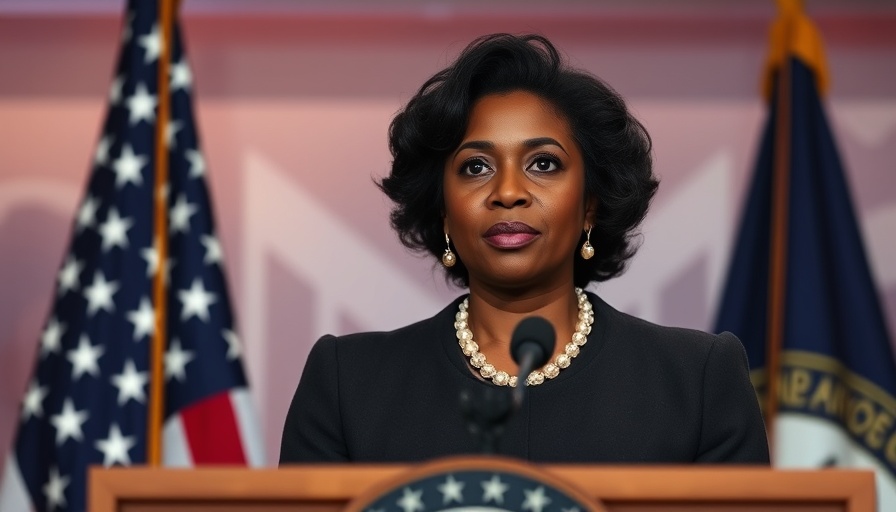
Mayor Bowser Defends D.C. Amid Security Proposals
In a striking reply to President Trump's recent decision to deploy the National Guard to Washington D.C., Mayor Muriel Bowser asserted that crime rates in the capital are already at a historic low. During her press conference on August 11, 2025, she described Trump's actions as "unsettling and unprecedented," emphasizing that the city's violent crime has significantly decreased in recent years.
30-Year Low in Violent Crime: What It Means
Bowser focused on the sharp decline in crime, noting that 2025 marks a 30-year low in violent crime for the city. She cited effective new laws and strategies implemented to tackle crime spikes and support police officers in their efforts, stating that the administration has already reversed the crime surge seen after the COVID-19 pandemic.
Debating Trump’s Portrayal of D.C.
Trump's description of the capital as overrun by violent gangs, drug addicts, and unsheltered individuals starkly contrasted with Bowser’s view of the city as a vibrant and beautiful place. She urged residents and visitors to appreciate the progress and safety achieved through dedicated efforts by local officials.
Home Rule and Federal Oversight: A Complex Relationship
In her remarks, Bowser highlighted the limitations of the city's home rule, where federal oversight often complicates local governance. Although Trump has the authority to intervene directly in D.C., she reiterated that local police chief Pamela Smith maintains command over the Metropolitan Police Department, and the city remains committed to upholding its own laws.
Understanding Crime Trends and Impact of COVID-19
The COVID-19 pandemic understandably strained law enforcement resources and contributed to rising crime rates. However, Bowser emphasized the administration’s swift actions to reinstate safety measures, arguing that the current crime rate shows noticeable improvements compared to pre-pandemic levels. Her response underscores a broader conversation about public safety policies in urban settings.
Insights into Crime Management and Future Directions
With D.C. experiencing a significant drop in violent crime, many urban advocates maintain that local control and community programs are vital for sustained safety improvements. The city's recent initiatives include fostering collaboration among community leaders and law enforcement to tailor approaches to crime reduction that reflect local values.
National Implications of Local Crime Policies
This ongoing situation in Washington D.C. poses broader implications for urban crime management nationally. As local leaders grapple with federal intervention, the balance of power and local autonomy remains a hotly debated issue. If the trends in D.C. are managed effectively, they may serve as a model for other cities facing similar challenges.
Concluding Thoughts: Advocating for Local Governance
As discussions continue around federal intervention in urban safety, Mayor Bowser's response reflects a pressing need for cities to maintain their rights to self-governance. Ensuring that local voices are heard is crucial for effective crime management and community trust.
Residents engaged in this discourse should consider how these dynamics affect not just their own city, but also the framework for governance at a national level.
In light of these discussions, I encourage readers to follow current events and support local governance initiatives that speak to their community needs. Engaging with local representatives and staying informed about developments will equip you to better advocate for the interests of your neighborhoods.
 Add Row
Add Row  Add
Add 




Write A Comment